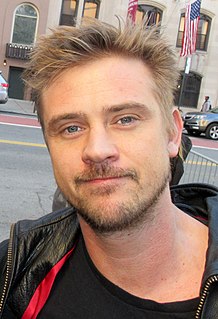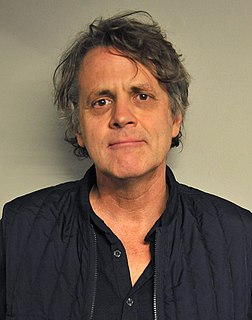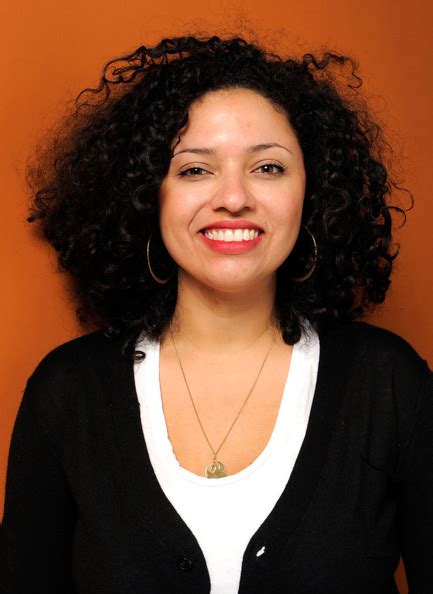A Quote by Pierce Brosnan
So that would be my input and I'd go off and I'd work on another film, and then I'd catch up with them later on in the year. We just kind of nursed the piece along. There was no timeframe. We didn't have anyone pushing us except ourselves to make the film, and a desire. And then the organic kind of naming of Roger; then it happened really fast.
Related Quotes
I gave up accounting. I went in for about six months writing ad copy. I was fired from that, and then another guy and I did a kind of poor man's Bob and Ray kind of syndicated radio show. Then I decided to stick it out and see what happened. I'd give it a year, a year became two years, and then two years became three years, and then along came the record album.
I'll generally write out every scene that's in the film on a couple of pieces of paper, just with a little one-line. And then I can scan it a bit and go, 'This first third of the film, generally, I'm kind of calm.' Then I might do something on one piece of paper that just relates to the energy of the character.
See, the first thing about actors is, you're just trying to get a job; and you audition and audition and you finally get them. And you still consider yourself an auditioning actor. I auditioned for One Fine Day, I wasn't offered that. So you're still in that 'Hey, I'm just trying to get a job' thing. Then, you get to the point where, if you decide to do it, then they'll make the film. That's a different kind of responsibility, and it usually takes a couple of films to catch up. And then you have to actually pay attention to the kind of films that you're making.
And by banning [smartphones] from the set, the whole crew tends to work tighter with each other. And then it just becomes a thing where people kind of fall in love with the idea, 'This is the film-industry that I signed up for! This is really wonderful.' But then they go back to another set and everybody's on their cellphone, everyone's in their own little box, and they get depressed about it.
What I do is work for three or four years and then I take a year off, and then I come back again and work for three or four years and then take another year off. It is not about just working and then writing for a year. That is not how it is structured. It is about doing very conscious goal-driven activities for four years and then taking a year off in complete surrender to discover facets of myself that I don't know exist and exploring interests with no commercial value associated with them at all.
On these feature films there are people on the staff who can draw 100 times better then I can, and animate better then I can, and light better then I can, write comedy better then I can. I basically am in the middle of kind of a creative typhoon and I'm just kind of talking the film up on to the screen. Minute to minute, meeting by meeting, day by day.
One of the things that I love when I go to a film or when I'm reading some book or whatever, is to be told a secret I thought only I knew and then someone says, "Oh my gosh, you know, too." And film can take us into private moments in a way that the theater, I think, kind of can't, and that's one of the reasons I like doing films. And the way a book can is that these little secrets and the private things that go on in our minds that maybe we haven't shared with anyone, and then someone writes it or shows it to you in a film, you think, "Oh, that's me. Oh my God, that's me, I have that secret."
All directors make films in individual ways. But the classical kind of view of filmmaking is that you have a script, and it's very linear. There's a script, then you're going to shoot the script ,and then you cut that, and then that's the end of the film. And that's never really been how I've seen it.
I was at one of the lowest points of my life when we started this film [Dream of Life], except, of course, that I had two great children. But the film is not documenting a decline; it's documenting a rise up - first baby steps and then big steps up. The worst that could have ever happened to me had already happened. And so the film is on the ascent. And I think that gives it a nice spirit.
There hadn't been one done since the late 70s. I was living in Brooklyn, had no connection to Roger Corman, to no one in this movie. I didn't go to film school. I'm like the person who should have never made this film. But I just decided to put one foot in front of the other. I was writing film articles for magazines at the time. I convinced an editor from one of the magazines that I was working for to give me a shot to do a piece on Roger. This was an excuse to go meet him.
I got married two weeks before my mom passed away, and then a year later, I was receiving some kind of artistic success that I'd never had. All of these really beautiful things happened where I was in love and I had a career I loved, but it was all kind of under the shadow of this really dark and painful thing.




































